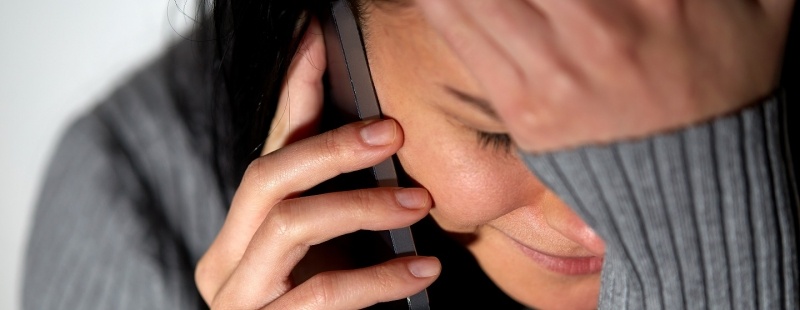For the vast majority of us, the Government's instructions to remain at home will ensure our safety from COVID-19. We are not stuck at home, we are safe at home. But for the 1.3 million women, 685,000 men and as many as 1 in 5 children in the UK who are victims of domestic abuse, home holds no sanctuary.
Many victims will now be locked at home with their abuser, and away from those who could help them. Isolation, which has long been a tool of an abuser, is now imposed and required. This will potentially escalate the risk of violence and abuse. There is a greater opportunity for financial abuse – restricting access to food, money or medical help. Threats may be made that the victim may be thrown out of the house if they present with symptoms.
Countries around the world have already seen an increase in reports whilst their populations are on lockdown to help prevent the spread of the virus. In Hubei province in China, where the outbreak originated, reports to the police more than tripled in February, from 47 in the same month last year, to 162 this year.
Already we have seen tragic consequences here in the UK. On Sunday 29 th March 2020, the bodies of Kelly Fitzgibbon and her two daughters, Ava aged 4 and Lexi aged 2, were found. Robert Needham is believed to have shot his family, before turning the gun on himself. On the same day, Victoria Woodhall, an NHS nurse and mother of three, was stabbed outside her home. Her husband, Craig Woodhall, has been arrested on suspicion of her murder.
There are increasing worries of the risk of such abuse going undetected before it reaches such critical levels in the current climate. There may be little or no opportunity for a victim to seek help, less chance for a teacher to see a worrying sign, fewer opportunities for Social Services to visit the home. Organisations and charities who work hard to provide help and support to those experiencing domestic abuse may see challenges with funding and staff shortages.
But for anyone experiencing domestic abuse, you are not alone. If you or your family are at immediate risk, telephone the police on 999. If it is not safe to talk, press 55 on your mobile telephone and you will be put through to your local police force. Women's Aid are still operating their live chat every weekday from 10.00am to 12.00pm, and their email service is continuing. The National Domestic Abuse Helpline continues to operate. Locally, Norfolk Community Law Service are providing advice and support by telephone and Leeway Domestic Violence and Abuse Services are still operating and providing support to adults, young people and children who are experiencing domestic abuse in Norfolk and Suffolk.
The government has now confirmed that anyone who is suffering domestic abuse or is at risk of suffering, are able to leave the home and seek refuge. The charity Refuge are working hard to ensure their services remain available.
The Family Courts remain open and operational for urgent applications to help those living with domestic abuse. An urgent application can be made for a Non-Molestation Order or an Occupation Order. Information on this can be found via our ' Domestic Violence and Abuse' webpage.
Clapham & Collinge remain ready and available to advise our clients on all aspects of family law, including domestic abuse. We will be here throughout lockdown and beyond, to help and support you. To discuss your individual circumstances or for more information please contact our dedicated Client Relations Team on 01603 693500 or email us using the 'Make an enquiry' form on our website.
*This article is provided for general information purposes only and does not constitute legal advice or other professional advice.
References – Office of National Statistics, NSPCC, The Guardian
